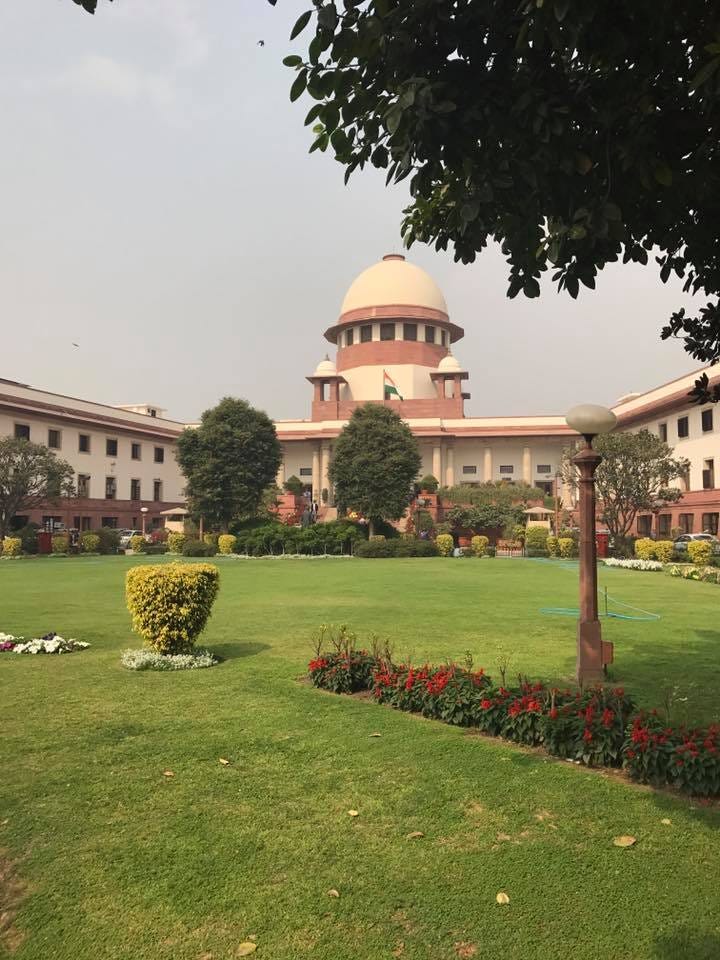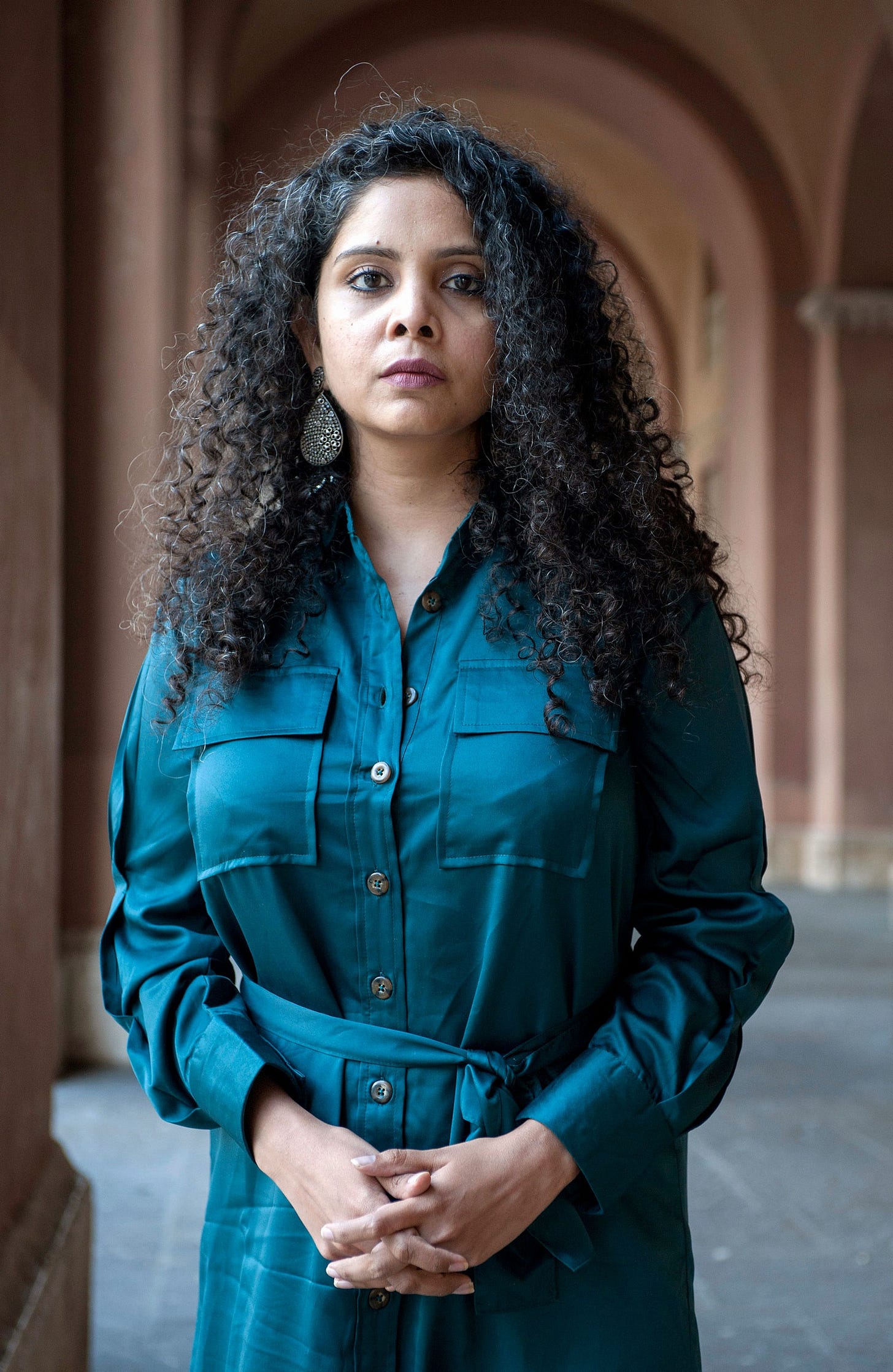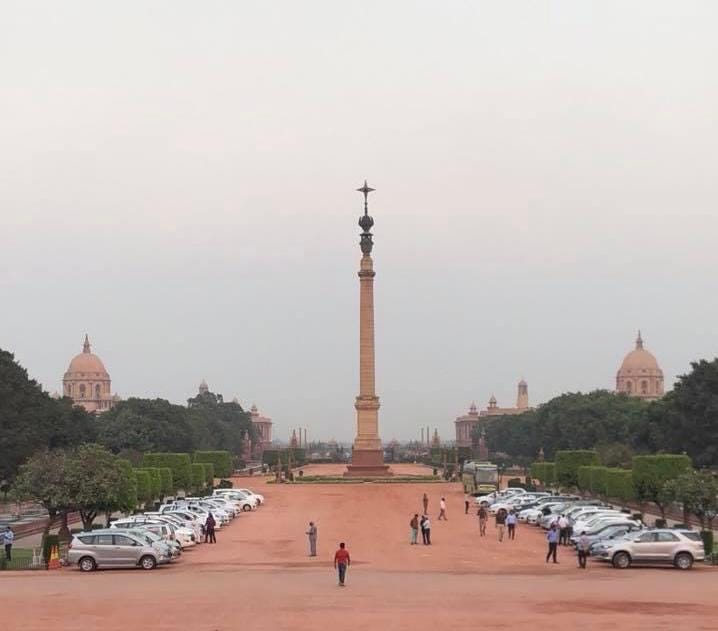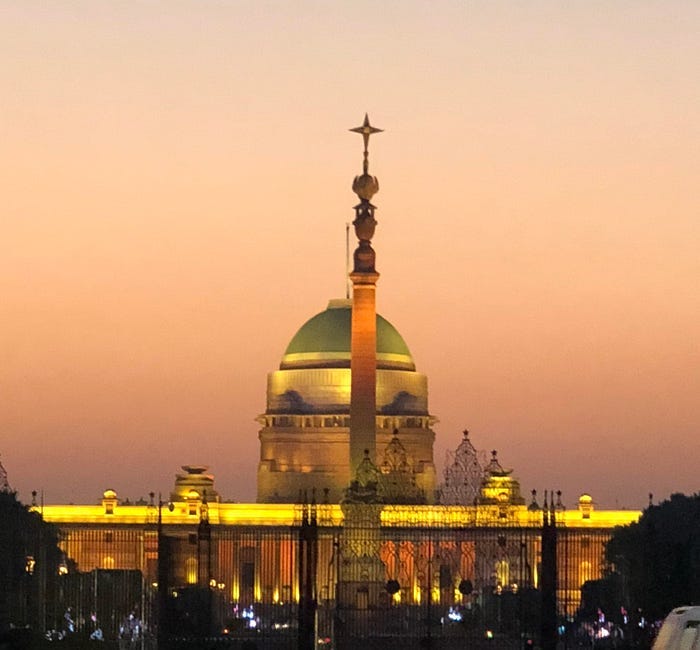Rana Ayyub's Opinion Piece: Exposing the Bias and Hidden Agenda in Her Washington Post Writeup
The title itself smacks of Bias and Prejudice: "India’s ruling party is using the Israel-Gaza war to demonize Muslims"

A Blatantly Biased Perspective
The recent article by Ms Rana Ayyub in The Washington Post, captioned "India’s ruling party is using the Israel-Gaza war to demonize Muslims" and published on November 29, accentuates her stance as a purblind and staunch critic of PM Narendra Modi. Her analysis of India's and the ruling party’s reactions to Hamas attacks on Israel, predominantly through an Islamophobic perspective, unmistakably mirrors her deep-rooted antagonism towards Modi's leadership1.
Questionable Credibility
Ms Ayyub, currently facing criminal proceedings under the Prevention of Money Laundering Act, 2002 for the alleged misappropriation of Covid-19 relief funds, portrays a skewed narrative in her writing. She attempts to cast Indian Muslims, especially women, as oppressed under the Modi administration. Her central thesis suggests that India’s unequivocal support for Israel against Hamas aggression is a calculated strategy to malign Muslims and, consequently, to hurt, humiliate and harass its 20 crore-strong Muslim citizenry.
India’s Foreign Policy: Excellent relations with Arab Countries and Muslim Nations
India's support for Israel, rooted in a nuanced foreign policy that balances national interests with moral principles, should not be misinterpreted as anti-Muslim. India sustains robust relationships with Israel, Arab nations, and other Islamic countries, including Iran, Indonesia, and Malaysia, showcasing a well-rounded approach. The complexities within the Muslim community, such as the Iran-Iraq War reflecting Sunni-Shia theological disparities, illustrate the difficulty of categorically labeling a sovereign action as “anti-Muslim.” This exemplifies the intricate nature of international relations and the need for a multifaceted perspective in foreign policy decisions.
Historical Context and Current Stance
India's relationship with Israel underwent a notable transformation under Prime Minister Narasimha Rao, who established formal diplomatic ties in 1992, more than four decades after Israel's establishment in 1948. India's unwavering support for the Palestine Liberation Organisation (PLO), however, continues unchanged. The reprehensible Hamas attack on October 7, which caused significant Israeli civilian casualties and hostage-taking, merited an unambiguous condemnation, and this was precisely the response from New Delhi. In this light, Israel's actions can be seen as justified self-defense measures against Hamas, an organization designated as a terrorist group by several countries, including Israel, the United States, and the European Union. Israel, having shown restraint over time, responded decisively only after the devastating October 7 attack.
Constitutional Safeguards for Minorities
India's Constitution uniquely grants educational and cultural rights as fundamental rights to linguistic and religious minorities, including Muslims, a privilege not extended to the Hindu majority. Apart from this, India’ liberal constitutional framework allows free speech, empowering individuals like Ms Ayyub to express dissenting views, even while facing legal challenges in India.
Silence on Global Issues Affecting Muslims
Ms Ayyub's conspicuous silence on the persecution of Uighur Muslims in China and the Rohingya crisis in Myanmar is quite telling. These situations, internationally recognized as severe human rights violations, are glaringly missing from her critical discourse. The plight of the Uighurs, facing reported instances of mass detention and cultural repression, and the Rohingyas, subjected to brutal displacement and violence, are critical issues that merit attention. This selective approach in her critiques raises questions about the comprehensiveness and impartiality of her journalistic perspective.
Middle East Dynamics and Palestinian Statehood
The bifurcated nature of the Palestinian state, with the Gaza Strip and the West Bank effectively governed by different entities, leads to varied responses from the Arab world. While there is criticism of Israel's retaliatory actions in Gaza, there isn't a unanimous support within the Middle East for Hamas's unprovoked assaults, notably those occurring 50 years following the Yom Kippur War of 1973. This division highlights the complex geopolitical dynamics of the region, where individual Arab nations often have their own nuanced stances on the Israel-Palestine conflict. Moreover, the differing approaches to governance and diplomacy by the Palestinian Authority in the West Bank and Hamas in Gaza further complicate the regional and international response to incidents of violence and attempts at peacemaking.
India's battle with Terrorism
India's protracted and ongoing battle against terrorism, often supported by neighbouring Pakistan, includes significant events such as the Indian Parliament attack on December 13, 2001, and the 26/11 Mumbai terror attacks in 2008. Ms Ayyub's narrative notably omits these events, along with the turbulent phase of terrorism in Punjab during the 1980s and early 1990s, and the distressing exodus of Kashmiri Pandits in the late 1980s and early 1990s. Additionally, the Pulwama incident of February 14, 2019, where a suicide bombing resulted in the death of over 40 Indian paramilitary personnel, is also absent from her account.
This selective omission, including recent conflicts in Jammu and Kashmir, underscores a disconcerting disregard for the breadth of India's challenges with terrorism. Such selective reporting overlooks the multifaceted and persistent hurdles India has faced in safeguarding its national security and sovereignty against the backdrop of persistent cross-border terrorism.
Skewed Vision and National Unity
Ms Ayyub's selective interpretation of events suggests a skewed perspective of Prime Minister Narendra Modi's government, which is committed to the vision of a united and integrated India, often referred to as “Akhand Bharat”. Her portrayals of key governmental decisions, such as the abrogation of Article 370 in Jammu and Kashmir and the enactment of the Citizenship Amendment Act, as anti-Muslim maneuvers are overly simplistic and seem designed to stir unrest and manipulate public sentiment. These portrayals not only exhibit her opposition to Modi's policies but also hint at a broader anti-India agenda. Furthermore, such narratives overlook the complexities and multifaceted nature of these policies, failing to provide a balanced view of their intentions and impacts on India's diverse population. This approach risks deepening divisions and misrepresenting India's efforts towards inclusive national development and unity.
Strengthening Secularism and Calling Out Pseudo-Intellectuals
The relentless efforts of the government are often mischaracterized, as vividly illustrated by Rana Ayyub's recent interpretation of India's stance on the Israel-Hamas conflict. Such narratives, particularly when advanced by Indian citizens, and more so if they are from the Muslim community, potentially undermine national cohesion. The Modi Government has consistently treated all its citizens with equal regard. To insinuate that the Ministry of External Affairs' response in this instance is motivated by the upcoming 24 Lok Sabha elections is both misleading and harmful.
Following the Pole Star of Authentic Secularism
Prime Minister Narendra Modi's administration cannot be justly accused of harbouring intentions to establish a "Hindu Rashtra." Instead, it can be argued, as we previously expunded2, that his Government has realigned India's trajectory towards becoming a truly secular republic, as envisioned by the Founding Fathers of our Constitution. In the decades following Independence, there was a tendency towards disproportionately favouring the largest religious minority community in the country, surpassing what might be considered equitable affirmative action.
Regardless of these considerations, Rana Ayyub's article warrants unequivocal condemnation from every Indian citizen, both within the country and in the diaspora, for its divisive implications and factual inaccuracies. This stance is essential not only for maintaining the integrity of factual discourse but also for preserving the unity and secular fabric of India.
Reputed publication like “The Washington Post” would also do well to editorially moderate such one-sided and biased opinions that can cast India in an undeservedly poor light rather than lionizing such authors, whose hidden agendas have become increasingly apparent
Our response to Rana Ayyub's Article in the Washington Post (The original article by Ms Ayyub is summarized here for context.)
In her Washington Post piece, Rana Ayyub criticizes the BJP's response to the Israel-Hamas conflict, suggesting it it intended to fuel anti-Muslim sentiments in India. She draws parallels between Hindu nationalism and historical admiration for Hitler, while also highlighting India's shift in policy towards Israel under Modi's government. Ayyub argues that India's intense support for Israel is rooted in Islamophobic politics, especially relevant in the context of the upcoming general elections.
India — towards a “Hindu Rashtra” or a truly Secular Republic?
Preamble didn’t initially contain the “Secular” The Constitution of India that was adopted by the Constituent Assembly on 26th November, 1949 and came into force on 26th January, 1950. The word “secular” did not find any mention in the initial version of t…










Reporting based on personal biases tarnishes the image of journalism .if there is even an appearance of personal bias , you have failed.